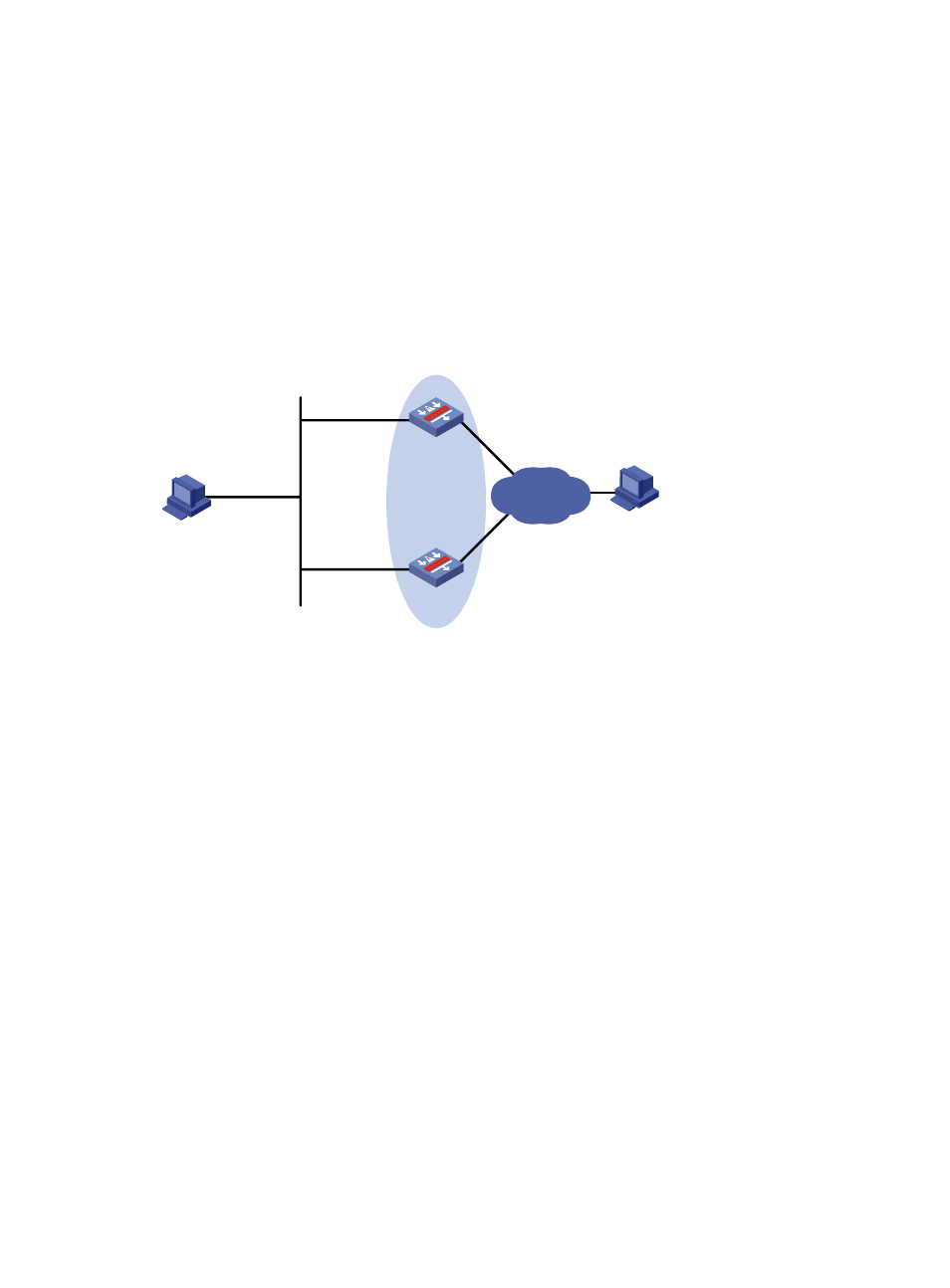Vrrp interface tracking configuration example, Network requirements, Configuration procedure – H3C Technologies H3C SecPath F1000-E User Manual
Page 28

27
VRRP Interface Tracking Configuration Example
Network requirements
•
Host A needs to access Host B on the Internet, using 202.38.160.111/24 as its default gateway.
•
Device A and Device B belong to VRRP group 1 with the virtual IP address of 202.38.160.111/24.
•
If Device A operates normally, packets sent from Host A to Host B are forwarded by Device A; if
interface GigabitEthernet 0/1 through which Device A connects to the internet is not available,
packets sent from Host A to Host B are forwarded by Device B.
Figure 11 Network diagram for interface tracking in VRRP
Host A
Device A
Device B
Virtual IP address:
202.38.160.111/24
GE0/1
202.38.160.1/24
GE0/1
202.38.160.2/24
Host B
202.38.160.3/24
203.2.3.1/24
Internet
Configuration procedure
Step1
Configure Device A
[DeviceA] interface gigabitethernet 0/2
[DeviceA-GigabitEthernet0/2] ip address 202.38.160.1 255.255.255.0
# Create VRRP group 1 and configure its virtual IP address as 202.38.160.111.
[DeviceA-GigabitEthernet0/2] vrrp vrid 1 virtual-ip 202.38.160.111
# Set the priority of Device A in the VRRP group to 110.
[DeviceA-GigabitEthernet0/2] vrrp vrid 1 priority 110
# Configure the authentication mode of the VRRP group as simple and authentication key as hello.
[DeviceA-GigabitEthernet0/2] vrrp vrid 1 authentication-mode simple hello
# Configure the master to send VRRP packets every five seconds.
[DeviceA-GigabitEthernet0/2] vrrp vrid 1 timer advertise 5
# Set Device A to work in preemptive mode. The preemption delay is five seconds.
[DeviceA-GigabitEthernet0/2] vrrp vrid 1 preempt-mode timer delay 5
# Set the interface to be tracked.
[DeviceA-GigabitEthernet0/2] vrrp vrid 1 track interface gigabitethernet 0/1 reduced 30
Step2
Configure Device B
[DeviceB] interface gigabitethernet 0/2
